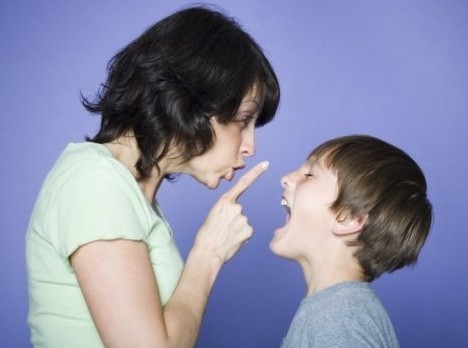One of parenthood’s toughest challenges is finding a way to communicate clearly with your children about our expectations and standards while also communicating our unconditional love and support. This is especially difficult when it comes to incentives and discipline. We want to reward without bribing them, punish without breaking their spirits. 
Psychotherapist, author, and talk show expert Alyson Schafer has a new book called Honey, I Wrecked the Kids: When Yelling, Screaming, Threats, Bribes, Time-outs, Sticker Charts and Removing Privileges All Don’t Work that has some wise and practical advice for parents looking for ways to set standards without unnecessary conflict, especially those kids who are extra difficult because they are particularly oppositional or manipulative. Schafer describes the impact that our “toxic times” have on children, giving them messages that undermine parental rules.
that has some wise and practical advice for parents looking for ways to set standards without unnecessary conflict, especially those kids who are extra difficult because they are particularly oppositional or manipulative. Schafer describes the impact that our “toxic times” have on children, giving them messages that undermine parental rules.
 Schafer says that everyone has four basic needs: the need to feel connected, the need to feel capable, the need to feel counted (a meaningful contributor), and the need to feel courageous. To the extent that parents speak to these needs, they can guide behavior. And they can do this by recognizing the sources of bad behavior.
Schafer says that everyone has four basic needs: the need to feel connected, the need to feel capable, the need to feel counted (a meaningful contributor), and the need to feel courageous. To the extent that parents speak to these needs, they can guide behavior. And they can do this by recognizing the sources of bad behavior.
When I don’t feel connected — I will seek undue attention.
When I don’t feel capable — I will seek power over others.
When I don’t feel I count — I will seek revenge.
When I don’t feel courageous — I will seek to avoid.
Parents often “reward” bad behavior by giving the child more attention. Or they “reward” it by negotiating, giving the child more power. Schafer gives parents very specific guidelines for redirecting a child’s behavior and permitting natural consequences to determine the incentives and results of their good and bad decisions. This book will help tired, overwhelmed parents come up with new tools to improve not just behavior but the home atmosphere as well.
Parents, too, need to feel connected, capable, meaningful, and courageous, after all.
As an added bonus, you will also learn some great techniques for dealing with some of the more challenging adults in your life, friends, colleagues, neighbors, and family.
And don’t forget one of my all-time favorites: How to Talk So Kids Will Listen & Listen So Kids Will Talk
says that your favorite movies are a reflection of your personality and temperament. Authors Risa Williams and Ezra Webb have written a book that sorts everyone into one of eight categories, based on their favorite movies. Their website also lets visitors submit their top 10 lists to get their profiles and get a chance to see profiles of other movie-lovers with similar tastes. The sorting may be superficial, but it is fun to see what other movies fall into your “type.”



